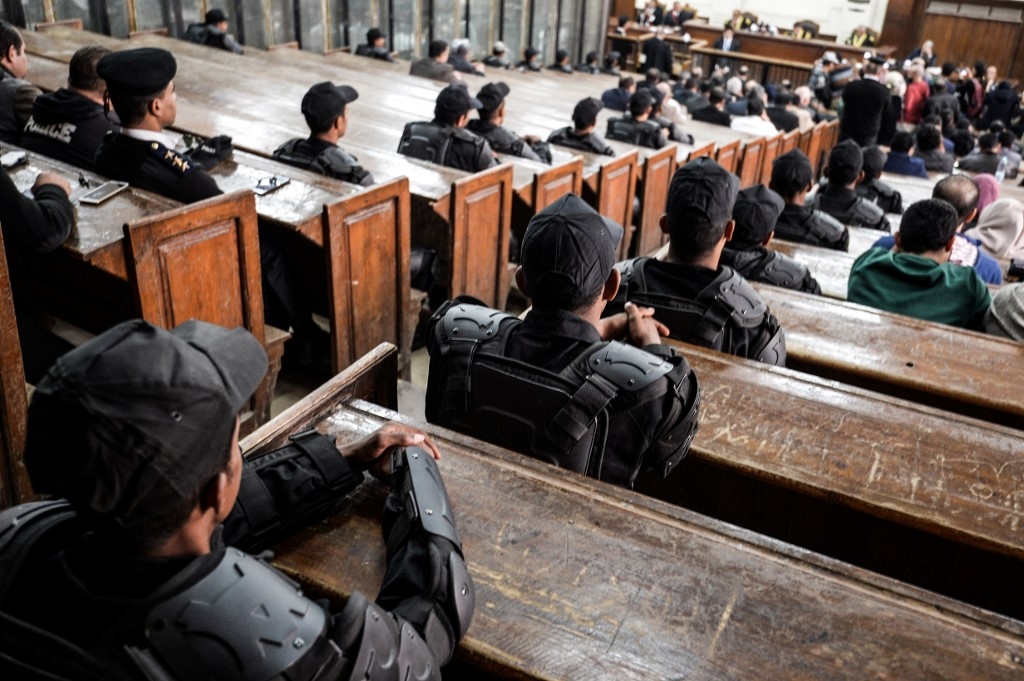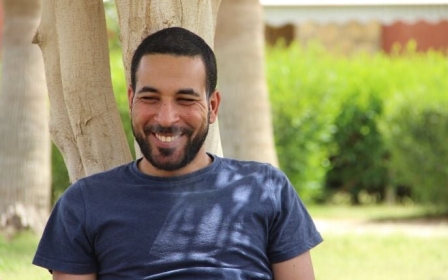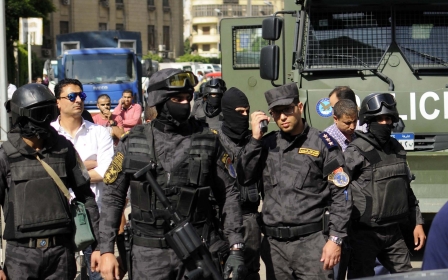Egypt accused of creating 'parallel justice system' to crack down on Sisi critics

Egypt has been accused of creating a parallel justice system to detain thousands of activists who are critical of Egyptian President Abdel Fatah el-Sisi.
A new Amnesty International report said it had compiled evidence that the Supreme State Security Prosecution (SSSP) had misused counter-terrorism policy to detain Egyptians for years without evidence, replicating long-term administrative detention practices under ousted President Hosni Mubarak.
Established in 1953, the SSSP is responsible for investigating and prosecuting a wide range of activities that could constitute threats to “state security”.
"The SSSP has become a central tool of repression whose primary goal appears to be arbitrarily detaining and intimidating critics, all in the name of counter-terrorism"
- Philip Luther, Amnesty International
But after Sisi came to power in 2013, the number of cases prosecuted by the SSSP tripled from 529 to 1,739 cases.
The SSSP has been involved in investigating political dissidents and prominent figures from the Muslim Brotherhood.
New MEE newsletter: Jerusalem Dispatch
Sign up to get the latest insights and analysis on Israel-Palestine, alongside Turkey Unpacked and other MEE newsletters
Within its report, titled the Permanent State of Exception, Amnesty conducted 100 interviews, as well as reviewing court and police documents, medical records, videos and reports by NGOs and United Nations agencies.
Out of 138 cases that it examined, Amnesty said 56 individuals were detained for protesting or for comments made on social media, while 76 had been detained because of their political or human rights activities. Six were accused of acts of violence.
Some of the individuals detained by the SSSP had been detained for 150 days in pre-trial detention, a power usually reserved for judges, where detainees could appeal for their release.
But after judges in Egypt ordered the release of these individuals, the SSSP can ask "terrorism circuit courts" to renew the detention of suspects every 45 days.
This latest Amnesty report also comes after the United Nations picked Egypt to co-lead the global UN counter-terrorism strategy.
Philip Luther, Amnesty's research and advocacy director for the Middle East and North Africa, said the SSSP had used "counter-terrorism" powers to detain and intimidate government critics.
“In Egypt today, the Supreme State Security Prosecution has stretched the definition of ‘terrorism’ to encompass peaceful protests, social media posts and legitimate political activities, resulting in peaceful government critics being treated as enemies of the state," Luther said in a statement.
"The SSSP has become a central tool of repression whose primary goal appears to be arbitrarily detaining and intimidating critics, all in the name of counter-terrorism."
Arrest of journalists
On Tuesday, Egyptian security forces raided a coffee shop in Cairo and arrested six people, including three journalists, according to independent news website Mada Masr.
The journalists detained were Soulafa Magdy, her husband Hossam al-Sayyad, and Mohamed Salah, Mada Masr said in a tweet, citing eyewitness accounts.
MEE could not independently verify Mada Masr's report.
On Sunday, plainclothes police raided Mada Masr's offices and arrested three of its staff, including its top editor.
A day earlier, security forces arrested another Mada Masr editor, Shady Zalat, from his home. The four journalists were released on Sunday.
Commenting on the arrests, US Secretary of State Mike Pompeo on Tuesday called on the Egyptian government to respect freedom of the press.
Middle East Eye delivers independent and unrivalled coverage and analysis of the Middle East, North Africa and beyond. To learn more about republishing this content and the associated fees, please fill out this form. More about MEE can be found here.




